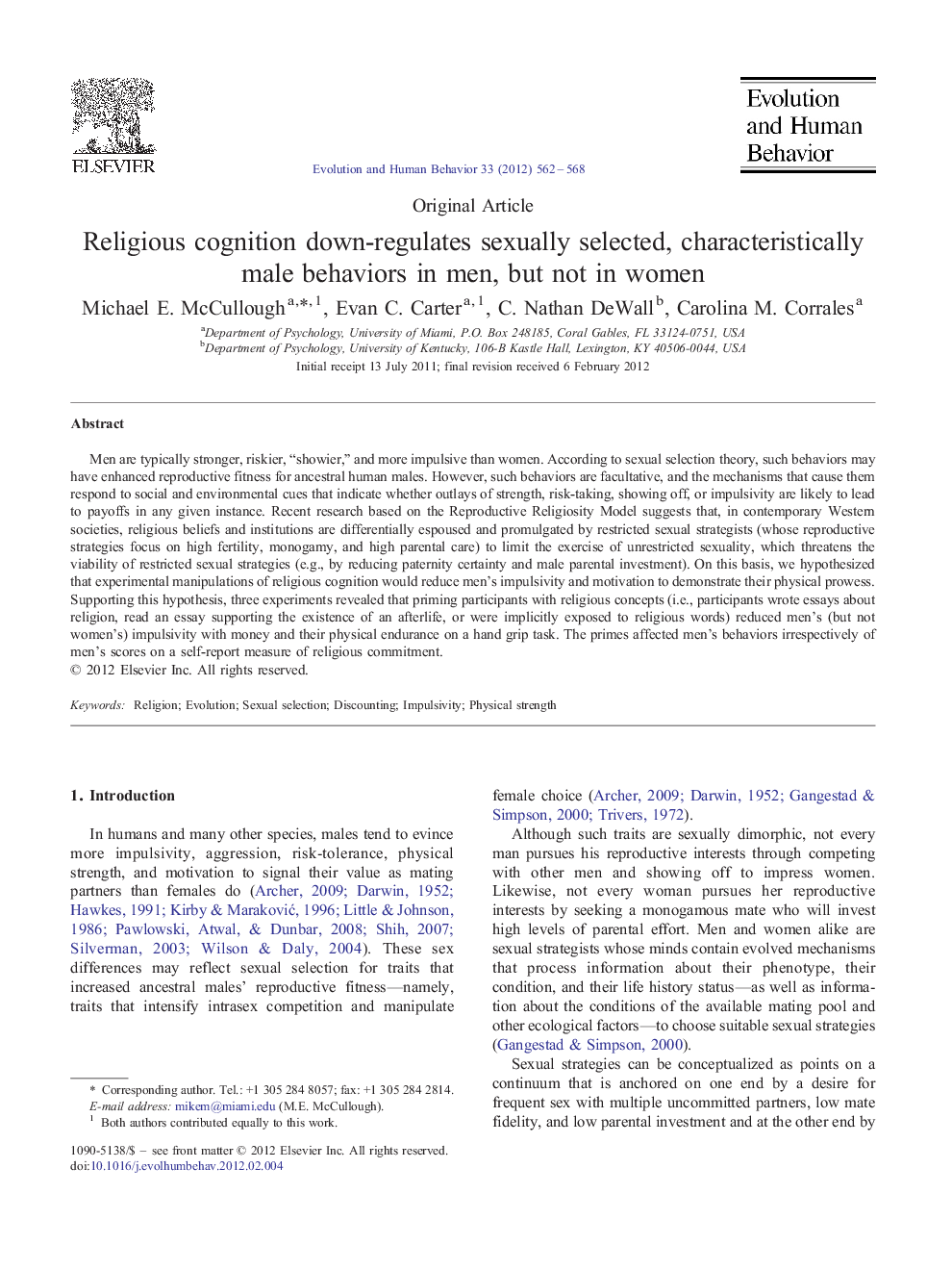| کد مقاله | کد نشریه | سال انتشار | مقاله انگلیسی | نسخه تمام متن |
|---|---|---|---|---|
| 943214 | 925439 | 2012 | 7 صفحه PDF | دانلود رایگان |

Men are typically stronger, riskier, “showier,” and more impulsive than women. According to sexual selection theory, such behaviors may have enhanced reproductive fitness for ancestral human males. However, such behaviors are facultative, and the mechanisms that cause them respond to social and environmental cues that indicate whether outlays of strength, risk-taking, showing off, or impulsivity are likely to lead to payoffs in any given instance. Recent research based on the Reproductive Religiosity Model suggests that, in contemporary Western societies, religious beliefs and institutions are differentially espoused and promulgated by restricted sexual strategists (whose reproductive strategies focus on high fertility, monogamy, and high parental care) to limit the exercise of unrestricted sexuality, which threatens the viability of restricted sexual strategies (e.g., by reducing paternity certainty and male parental investment). On this basis, we hypothesized that experimental manipulations of religious cognition would reduce men's impulsivity and motivation to demonstrate their physical prowess. Supporting this hypothesis, three experiments revealed that priming participants with religious concepts (i.e., participants wrote essays about religion, read an essay supporting the existence of an afterlife, or were implicitly exposed to religious words) reduced men's (but not women's) impulsivity with money and their physical endurance on a hand grip task. The primes affected men's behaviors irrespectively of men's scores on a self-report measure of religious commitment.
Journal: Evolution and Human Behavior - Volume 33, Issue 5, September 2012, Pages 562–568